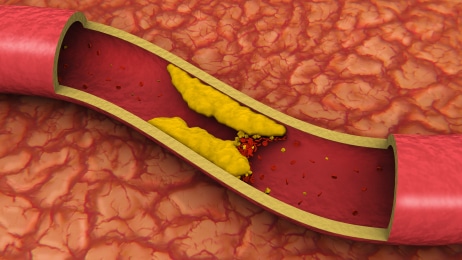 Nitric oxide or NO may just be the most important molecule in the body next to water and oxygen. So important, in fact, that there is an entire journal dedicated to research on it and the many health benefits of this amazing molecule, Nitric Oxide: Biology and Chemistry, the official journal of the NITRIC OXIDE Society.
Nitric oxide or NO may just be the most important molecule in the body next to water and oxygen. So important, in fact, that there is an entire journal dedicated to research on it and the many health benefits of this amazing molecule, Nitric Oxide: Biology and Chemistry, the official journal of the NITRIC OXIDE Society.
There are now over 100,000 scientific papers written on nitric oxide with more being published every day. Why? Suboptimal nitric oxide levels play a role in the development of heart disease, strokes, hypertension, diabetes, erectile dysfunction, memory, cancer, drug addiction, sunburn, infectious diseases, and more. Nitric oxide is probably protective against every known disease process.
Bob Furchgott, Lou Ignarro, and Ferid Murad were awarded the Nobel Prize in Physiology or Medicine in 1998 for their ground breaking work on nitric oxide. Sine then there has been an explosion in research on this remarkable molecule, which many have never heard of.
What is Nitric Oxide?
What is nitric oxide?
Nitric oxide is a simple molecule, NO. That’s it! One nitrogen atom and one oxygen atom. It’s not to be confused with nitrous oxide, or laughing gas, which is N2O, nor with nitrogen dioxide, which is NO2 and a pollutant.
NO is produced in the endothelium, the one-cell thick lining of the blood vessels. At the root of cardiovascular disease is poor endothelial health. Nitric oxide is a gas that relaxes the smooth muscles of blood vessel leading to dilation of the vessels and improved blood flow. Life is all about blood flow. It also prevents platelets from clumping together reducing blood clots.
Nitric oxide does much more, however. What are some of the other functions of nitric oxide? It is a signaling molecule communicating with other cells and tissues. In the brain nitric oxide is a neurotransmitter.
Nitric oxide enhances immune function against microbes and cancer cells. It also dilates the smooth muscles in the airway improving airflow. And, nitric oxide is anti-inflammatory and enhances the effect of non-steroidal anti-inflammatory medications.
If the endothelium is injured or inflammed there is less nitric oxide production. So one key to maintaing nitric oxide production is to squelch low-grade inflammation, or silent-inflammation. Eating low glycemic foods, exercising, and maintaining youthful hormone levels are some of the ways to combat silent inflammation. But, unfortunately nitric oxide production decreases in all of us as we age regardless of our state of health and our best efforts.
Nitric Oxide in Action: Erectile Dysfunction
One classic example of nitric oxide in action is in the case of erectile dysfunction. Drugs like Viagra, Cialis, and Levitra work by maintaining nitric oxide levels, which improves blood flow to the penis and thus improving erectile dysfunction. But, those erectile dysfunction drugs aren’t the only way to improve nitric oxide levels. Shhhh! Don’t tell the Big Pharma about that. Certain foods, supplements and exercise can improve nitric oxide levels. More on that in future posts!
Nitric Oxide and Cardiovascualar Health
Let’s take a look at just the benefits of nitric oxide on cardiovascular health. Nitric oxide can reduce blood pressure, a major risk factor for heart disease. Nitric oxide improves the pliability of blood vessels so that they are more flexible and less stiff.
Nitric oxide can prevent and even reverse plaque build-up in the arteriers. And, it even reduces cholesterol and trigylceride levels. Nitric oxide has also been shown to reduce CRP (C-reactive protein), an inflammatory marker for heart disease. It’s almost the perfect “drug” for cardiovascular disease.
What is nitric oxide? It’s a unique molecule necessary for optimal health. In future posts we will discuss nitric oxide boosting foods and supplements, the relationship between nitric oxide and exercise, and the relationship between nitric oxide and sleep including its role in sleep apnea, plus more.
See related article:
Boosting Nitric Oxide with Exercise

This really answered my problem, thank you!